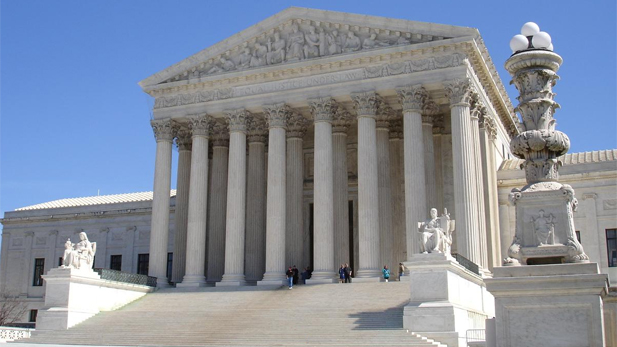
Racial profiling in application of Arizona's illegal immigration law is not being challenged by the federal government because it is a non-issue, says the author of SB 1070.
Yet it remains a major worry among Latino leaders and civil rights advocates, who say they feel they already are and will be targets of profiling under the law.
Russell Pearce, former president of the Arizona Senate and author of SB 1070, said in an interview that federal officials are "hypocritical" about racial profiling. That is because federal law, both in statutes and court decisions, upholds the use of profiling as one tool in immigration law enforcement, he said.
The U.S. Supreme Court will hear the U.S. government's challenge to the law on Wednesday, with Pearce and Arizona Gov. Jan Brewer in attendance. That challenge will not include what some have said are significant issues over whether or how racial profiling is part of the law.
Pearce said that's because the bill he wrote, which became law with Brewer's signature two years ago Monday, prohibits racial profiling.
"The bill has several safeguards, not just one," Pearce said. "It prohibits racial profiling; the federal law does not. We say you must have a legitimate contact; the federal law does not. We say you have a reasonable suspicion before you go further; the federal law does not.
"... Was that needed in the bill? No, but I put it in because of my concern for the silly things that would be said to make it clear," said Pearce, whose ouster from office last year in a recall election was attributed in part to Latino voter backlash to his tough-on-immigration stance.
Despite his reassurances, Latino leaders said they think it is a virtual inevitability that Latinos who are U.S. citizens or otherwise in the country legally will be targeted because of how they look.
"The whole issue people have with SB 1070 is that it leads to racial profiling," said Leticia de la Vara, director of One Arizona, a coalition of 11 organizations that work to help Latinos gain citizenship, register to vote and cast ballots. "You cannot tell from looking at someone what their country of origin is. And it really shouldn't matter. What should matter is if they are in the act of breaking the law."
U.S. Rep. Raúl Grijalva, D-Ariz., a leading critic of SB 1070, agreed.
"There are issues, the racial profiling, opening up a Pandora's box on suspicion, opening up a Pandora's box based on how you look, how you speak, what language you speak and making that a criterion for suspicion," Grijalva said. " ... The people in this state who are opposed to it, and particularly the Latino community--to them, this issue is personal."
After the bill was signed into law, Grijalva led the call for an economic boycott of Arizona, something for which he was roundly criticized and from which he has since distanced himself. He said he pulled back because the boycott was not having an impact.
De la Vara said Latinos are the target of SB 1070, and there is not a way for law enforcement officers to make a distinction between people in the country legally and illegally.
"When you're Latino, your color doesn't change the more you're here. You look a certain way, and this is what we've seen with 1070," she said. "You look a certain way, you're a suspect. If your skin is darker than what someone may think it should look like for someone who is native-born, you could be questioned. If you have an accent, you could be questioned. ... Those are parameters for racial profiling."
Pearce said such criticism sells short not only the law and its ban on racial profiling, but the way law enforcement officers act to avoid racial profiling.
"We have a huge legal population of Hispanics. Nobody fights harder to stop any encroachment of liberty than I do," Pearce said. "I would never allow that arbitrary kind of conduct by our law enforcement agencies. It's demeaning to think they would."
The fact that racial profiling isn't in the U.S. Supreme Court challenge is a surprise, said a constitutional law expert who has studied SB 1070.
"We thought this was a particularly important issue," said Carissa Byrne Hessick, a professor at Arizona State University's Sandra Day O'Connor College of Law. "It ends up that this didn't really come up in the lawsuit that the United States filed against Arizona, so it's actually not going to be discussed really before the U.S. Supreme Court.
"But at the time the law was enacted, this was the question we were getting most often: what are the race and civil rights implications of this law?"
Under Arizona's law, Hessick said, law enforcement officers with a reasonable suspicion that someone is in the country illegally can check legal status. The civil rights implication comes from how they would have a reasonable suspicion, she said.
"The reason why this has racial justice implications is you have to figure out how is a law enforcement officer going to have a reasonable suspicion that someone is in the country illegally," she said. "As you might imagine, that phrase had a lot of people jumping to the conclusion that it would lead to racial profiling."
Hessick said she thinks there are two reasons the federal government is not arguing against any potential for racial profiling under the law. First, she said, the government is going with its strongest case, that of federal sovereignty in matters of immigration control and issues that affect foreign relations.
Second, she said, the federal government uses racial profiling in immigration enforcement, and its right to do so has been upheld in court, including the Supreme Court.

By submitting your comments, you hereby give AZPM the right to post your comments and potentially use them in any other form of media operated by this institution.